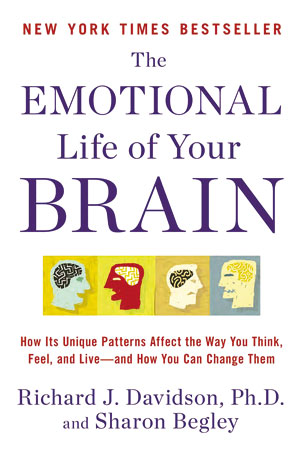Being compassionate has loads of benefits
Recently I came across an old letter where a teacher of mine was unfairly critical of my work. In a moment my mood changed and feelings of anger and irritation came flooding back. “How unfair,” I thought, “He should never have written these words.”
I am sure this has happened to you too. One moment you are going about peacefully with your life and something triggers a memory of a person or event in your life that has caused you grief and your mood changes immediately for the worse.
 My father was an exceptional person with high ethical standards to which he adhered to rigidly even at huge personal cost. He always kept a promise and was scrupulously honest. There was one problem. He expected others to keep to his standards and those who failed to do so he would cut them off from his life. My parents had a number of siblings and I remember with affection all my uncles and aunts and the happy family gatherings we had. But there was one family member who many years ago had offended my father. He never forgave him. And during all the gatherings he pointedly ignored him. It was awkward for all the others especially as my father was the respected elder in the gathering and cast a pall over otherwise happy gatherings. He mellowed with the years and the atmosphere improved. After all these years I cannot help but wonder “Could he have changed sooner?”
My father was an exceptional person with high ethical standards to which he adhered to rigidly even at huge personal cost. He always kept a promise and was scrupulously honest. There was one problem. He expected others to keep to his standards and those who failed to do so he would cut them off from his life. My parents had a number of siblings and I remember with affection all my uncles and aunts and the happy family gatherings we had. But there was one family member who many years ago had offended my father. He never forgave him. And during all the gatherings he pointedly ignored him. It was awkward for all the others especially as my father was the respected elder in the gathering and cast a pall over otherwise happy gatherings. He mellowed with the years and the atmosphere improved. After all these years I cannot help but wonder “Could he have changed sooner?”
In previous articles, I have talked about the practice of mindfulness meditation and how it is the basis for an effective psychotherapy for depression. An important aspect of mindfulness meditation based on Buddhist teaching is metta meditation. “Metta” is a Pali term that usually translates as “loving kindness.” The Dalai Lama, an exponent of compassion in his book Art of Happiness says, “If you want others to be happy, practise compassion. If you want to be happy, practise compassion.” Now my rational mind has a problem with the first part of this admonition though the second is plausible. How can sitting quietly and reciting that all beings should be happy bring happiness to other people? Can such enunciations generate a mysterious wave that spreads to other beings and makes them happy or more kind? My logical mind rebels at the idea. Are there any scientific studies that have considered such a phenomenon?
The most extensive is the study by Dr Herbert Benson, Director of the Mind Body Institute at Harvard Medical School. A decade-long study of 1800 patients showed that prayers offered by strangers for patients about to undergo cardiac bypass surgery had no beneficial effects on their recovery. In fact, the researchers were disturbed to find that patients who were aware that they were being prayed for had a higher mortality and rate of complications. A possible explanation was that patients who knew they were being prayed for became more anxious about their condition and the resulting higher stress levels caused the negative effects.
 Perhaps the researchers missed something here. Were their beneficial effects on the people who prayed? A leading researcher in this area is Richie Davidson, Director of the Centre for Investigating Healthy Minds of Wisconsin University. His research has shown that people who practised compassion meditation showed increased brain activity in regions associated with empathy and understanding. In his book The Emotional Life of Your Brain, he outlines three decades of research into the brain mechanisms that underlie emotions
Perhaps the researchers missed something here. Were their beneficial effects on the people who prayed? A leading researcher in this area is Richie Davidson, Director of the Centre for Investigating Healthy Minds of Wisconsin University. His research has shown that people who practised compassion meditation showed increased brain activity in regions associated with empathy and understanding. In his book The Emotional Life of Your Brain, he outlines three decades of research into the brain mechanisms that underlie emotions
He also describes new insights in to neural correlates of the so-called noble qualities of the human mind such as compassion, wellbeing, charity, altruism, kindness and love. More importantly, he shows how such basic research can be translated into practical ways of nurturing and enhancing these qualities in our selves. He has designed a preschool and elementary school curriculum to enhance kindness and mindfulness.
The impact of the project in academic achievement as well as on attention, empathy and cooperation, all of which are important for success in life is now being evaluated.
At a conference on Mindfulness and Wellbeing, Dr Davidson describes four important qualities that have been proven by science to be capable of active nurturing and development. The four being: Resilience, outlook, attention and generosity.
 Resilience is how quickly we recover from adversity. Some of us recover quickly, some take more time. This ability is built into brain circuits but can be developed and improved. However, for change that is visible on a brain scan, it takes several thousand hours of meditation. But it is never too late to start.
Resilience is how quickly we recover from adversity. Some of us recover quickly, some take more time. This ability is built into brain circuits but can be developed and improved. However, for change that is visible on a brain scan, it takes several thousand hours of meditation. But it is never too late to start.
A person with a positive outlook is able to see the good in others and savour more fully positive life experiences. Unlike resilience, this quality can be improved more quickly. In a study in 2013 persons who have never meditated before were divided into two groups. One group was trained in a secular form of compassion meditation and the other on a type of cognitive therapy. The persons, brains were scanned before and after training. After just seven hours of compassion meditation (30 minutes a day for two weeks) the scans showed changes in brain circuits responsible for positive outlook. The change was also reflected in their behaviours.
The third important quality, attention, may seem out of place on the list. But if you think about it the ability to bring your attention back to the present is an important quality. Most of us have wandering minds and the majority of our thoughts are either on the past or the future, perhaps ruminating on past unhappy events, or worrying what the future will bring. We thus lose out on enjoyment of our present moments. Improving the ability to focus on the present is a prime objective of mindfulness meditation.
The fourth quality generosity is directly linked to the topic of our discussion – compassion. There is now increasing evidence that when individuals behave with generosity and compassion there is visible alteration of their brain circuits. In an interesting book, Just Babies, Yale Psychology Professor Paul Bloom gives evidence that humans are hard wired for morality and we come into the world with a sense of basic goodness–a far cry from the conventional view that babies are inherently selfish. Compassion meditation helps build on that foundation.
| Wish to try out compassion meditation? If you wish to try out compassion meditation here is a framework you can use. Make yourself comfortable and follow these instructions. You may assume a traditional meditation pose or sit on a chair. Form an image of yourself and wish for yourself the following: May I be well and happy, May I have no fears and sorrows, May I be healthy and free of illness, May I live calmly and peacefully. Now successively substitute for your image pictures of other significant persons in your life such as your spouse, children and relatives and change the wording accordingly. Next, imagine a person for whom your feelings are neutral. Finally, imagine a person you strongly dislike and do the same (this is the difficult part!).Keep practising. As I said before there is good evidence that this training will permanently change your brain for the better. Remember what the Dalai Lama said, “… If you want to be happy practise compassion.”
| |


